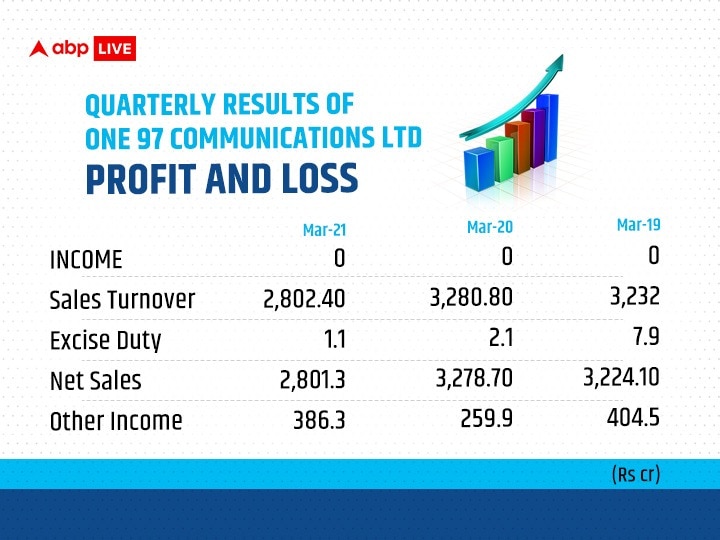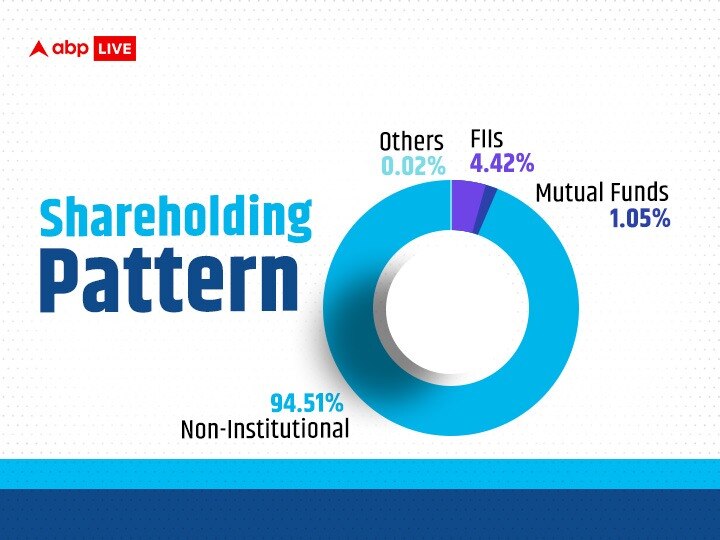Decoding Paytm's Financial Health | Alibaba, Ant Financials Exit Company, Valuation Takes A Hit
The total stake of the two Chinese companies were 43.32 per cent, of which Alibaba had 28.34 per cent and the rest 14.98 per cent was with Ant Financials

New Delhi: Vijay Sekhar Sharma-led Paytm Mall has seen the exits of its two prime investors. Chinese billionaire Jack Ma-led Alibaba and Ant Financials have sold their entire stake in the e-commerce firm.
These two companies, which have backed Paytm Mall for five years, have offloaded their entire stake in the company.
The total stake of the two Chinese companies were 43.32 per cent, of which Alibaba had 28.34 per cent and the rest 14.98 per cent was with Ant Financials.
Paytm E-commerce Private Limited, the parent entity of Paytm Mall, has bought back the shares for Rs 42 crore.
In 2017, Alibaba had invested $200 million in Paytm Mall. Since then Paytm Mall had cumulatively raised over $800 million from top global investors such as Alibaba, Ant Financial, eBay, SAIF Partners, and SoftBank.
According to news reports, the valuation of the firm has taken a hit, as the deal valued the company at Rs 100 crore.

During the last fundraising round the valuation for Paytm Mall was registered at $3 billion (Rs 21,000 crore) in 2020. In terms of the company's valuation, this was a huge climbdown for Paytm Mall. However, the company did not disclose the current valuation.
In a statement Paytm Mall has refuted the media reports on its valuation. A spokesperson of the company said, “We are focused on our transition to build a sustainable business in partnership with ONDC and are excited about the future of e-commerce in India. As part of the shift in the business direction of the company, Paytm E-commerce Private Limited also saw the exit of early investors. The exit price of any investor(s) in the company via capital reduction process is not reflective of the valuation of the company and neither does the exit have any link to any FDI laws. One simple metric is to consider that our cash balance itself is significantly higher than the quoted number in media reports, which establishes that the suggested low Fair Market Valuation is completely inaccurate.”
The company has called an extraordinary general meeting (EGM) on May 23 to discuss the proposal to reduce the company’s equity share capital and securities premium account, Paytm E-commerce said.
According to Hurun’s unicorn list 2021 published in December, Paytm Mall had fallen off from the unicorn list as its valuation had come down below $1 billion.

The company became a unicorn in 2018. In 2020, the online e-commerce company was valued at Rs 3 billion. Any company which crosses a valuation of $1 billion is called a unicorn.
As part of the shift in the business direction of the company, Paytm E-commerce, which saw the exit of its early investors, is confident of its new strategy and road map with the continuing support of other existing shareholders.
Paytm E-commerce has announced that it will pivot to Open Network for Digital Commerce (ONDC) as its primary focus and explore opportunities in exports business in place of traditional physical goods e-commerce.
Keeping in mind our attention to building an open platform for e-commerce, our @PaytmMall ‘s business now be built on @ONDC_Official . It will be cost effective, scalable and bring even larger impact to small businesses. https://t.co/738it43YnV
— Vijay Shekhar Sharma (@vijayshekhar) May 16, 2022
This move enables the firm to create a long-term sustainable business in partnership with ONDC, which aims to democratise the purchase and sale of goods in the Indian market, driving transparency and digital independence for small businesses in the country.
It may be noted that the publicly listed One 97 Communications Limited has no direct or indirect shareholding in Paytm Mall’s parent entity. Paytm E-commerce is not a part of the OCL group, though Paytm E-commerce uses the Paytm brand and receives services from OCL.
The spokesperson of the company said, “We are set to build on the revolutionary ONDC programme by the government to drive online commerce in India. We also plan to explore opportunities in the export market. We are grateful for the support of our investors and look forward to driving sustainable growth.”
One 97 Communications, the parent firm of Paytm, got listed on the bourses on November 18, 2021, which is now the second-biggest IPO after LIC. The shares tanked 27 per cent on debut, marking as one of the worst-ever listings by any e-commerce and online payments company. The stock hit a record high of Rs 1,961.05 on November 18, 2021, on Day One. Since then Paytm shares kept on declining.
According to latest exchange data, the shares hit a record low at Rs 511.00, down around 3 per cent on May 12. The stock has sunk 26 per cent in the past one month.
On Thursday, at 2.45 pm, shares of One 97 Communications were trading at Rs 557, down 5.21 per cent on the BSE.
While extending losses, the two key equity benchmarks, Sensex and Nifty, have sharply declined on Thursday.





































